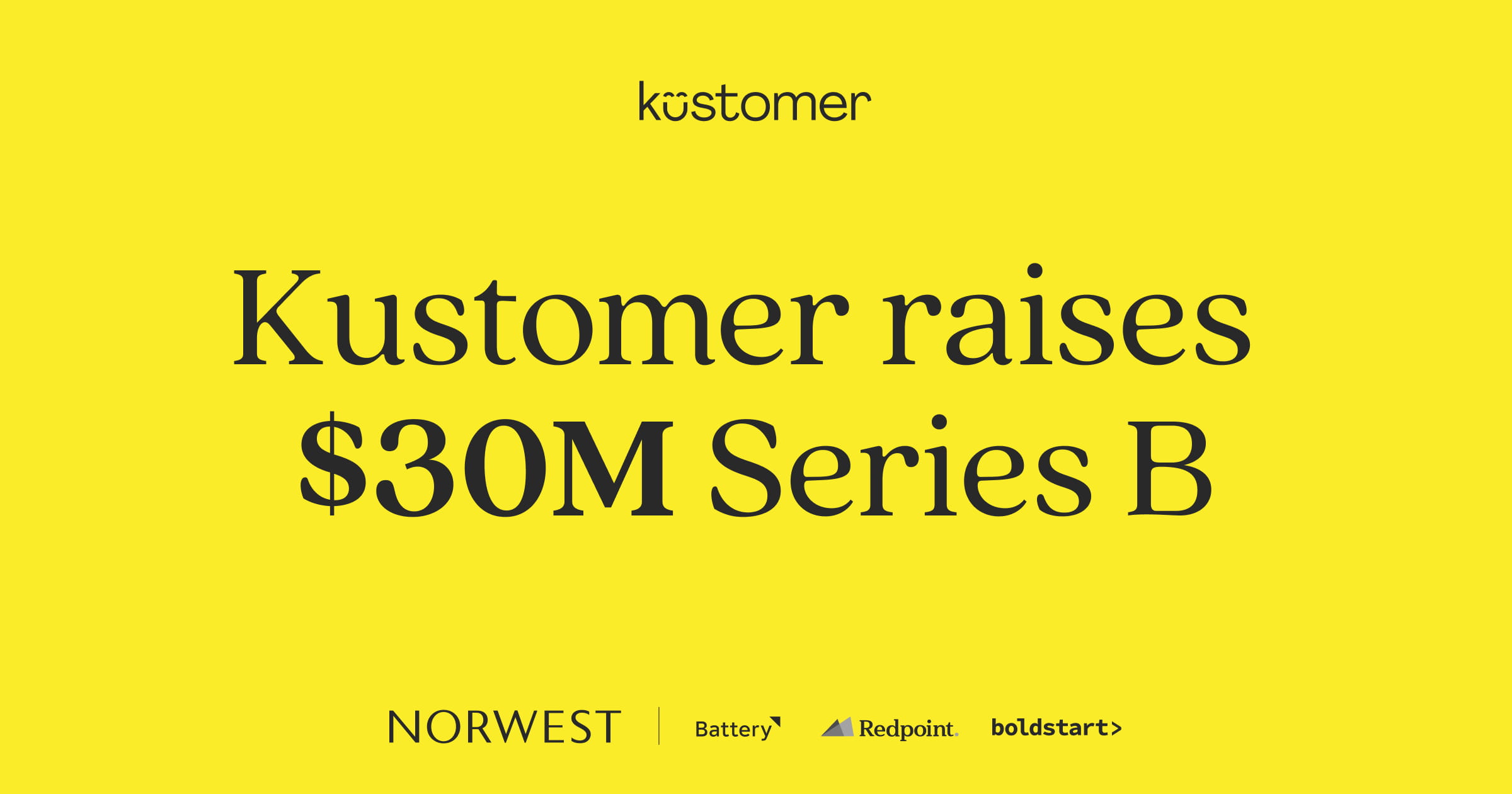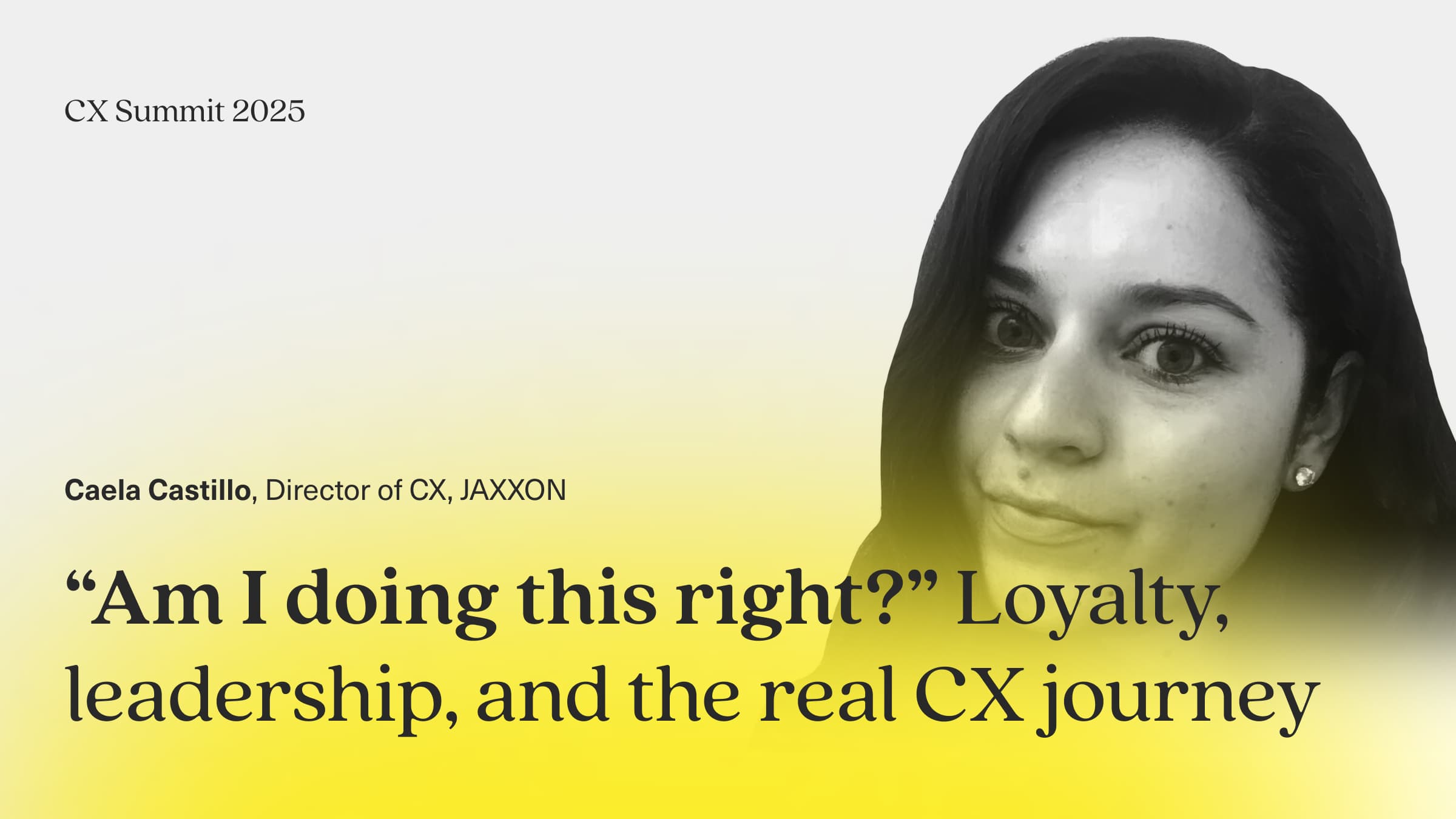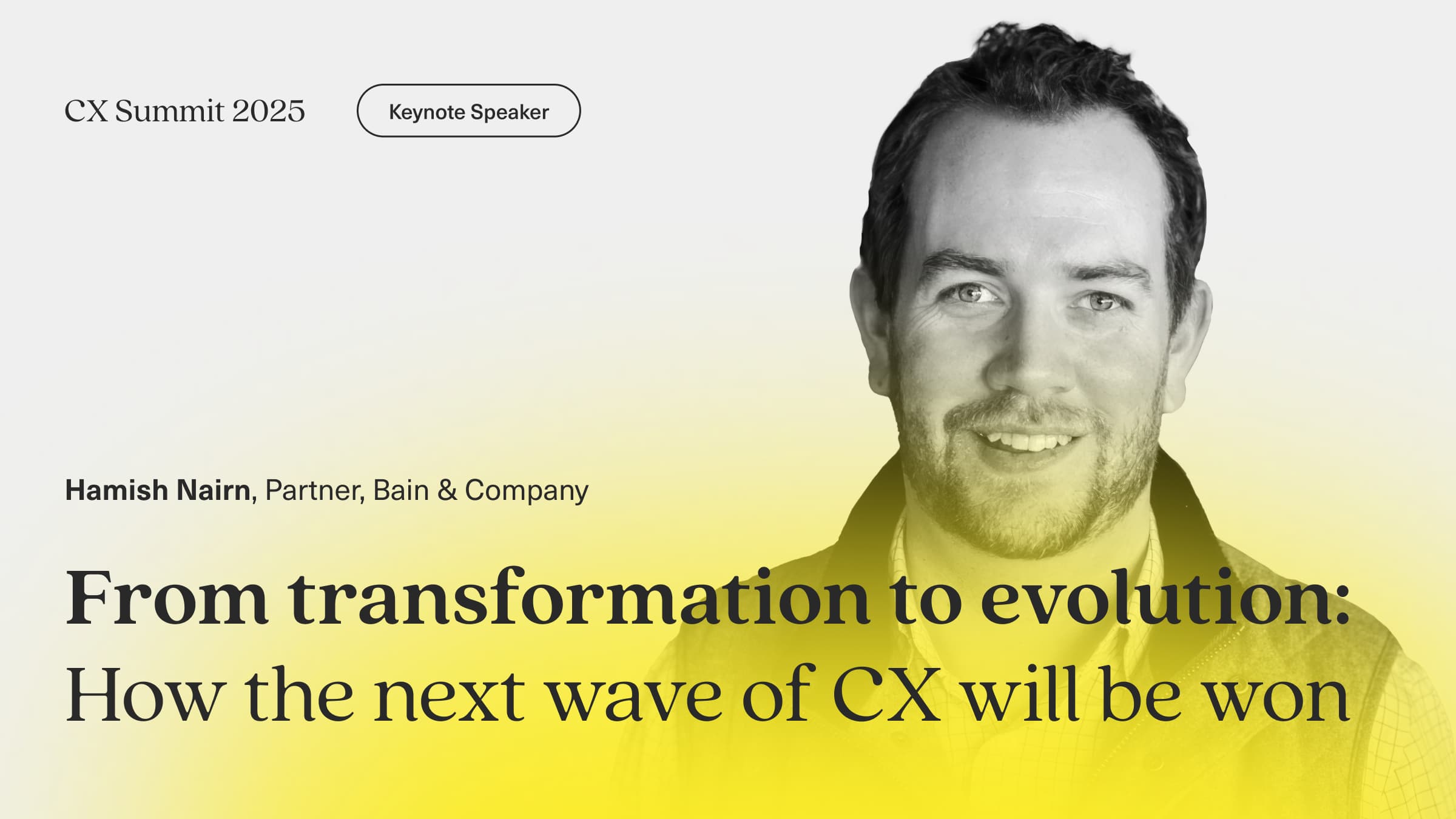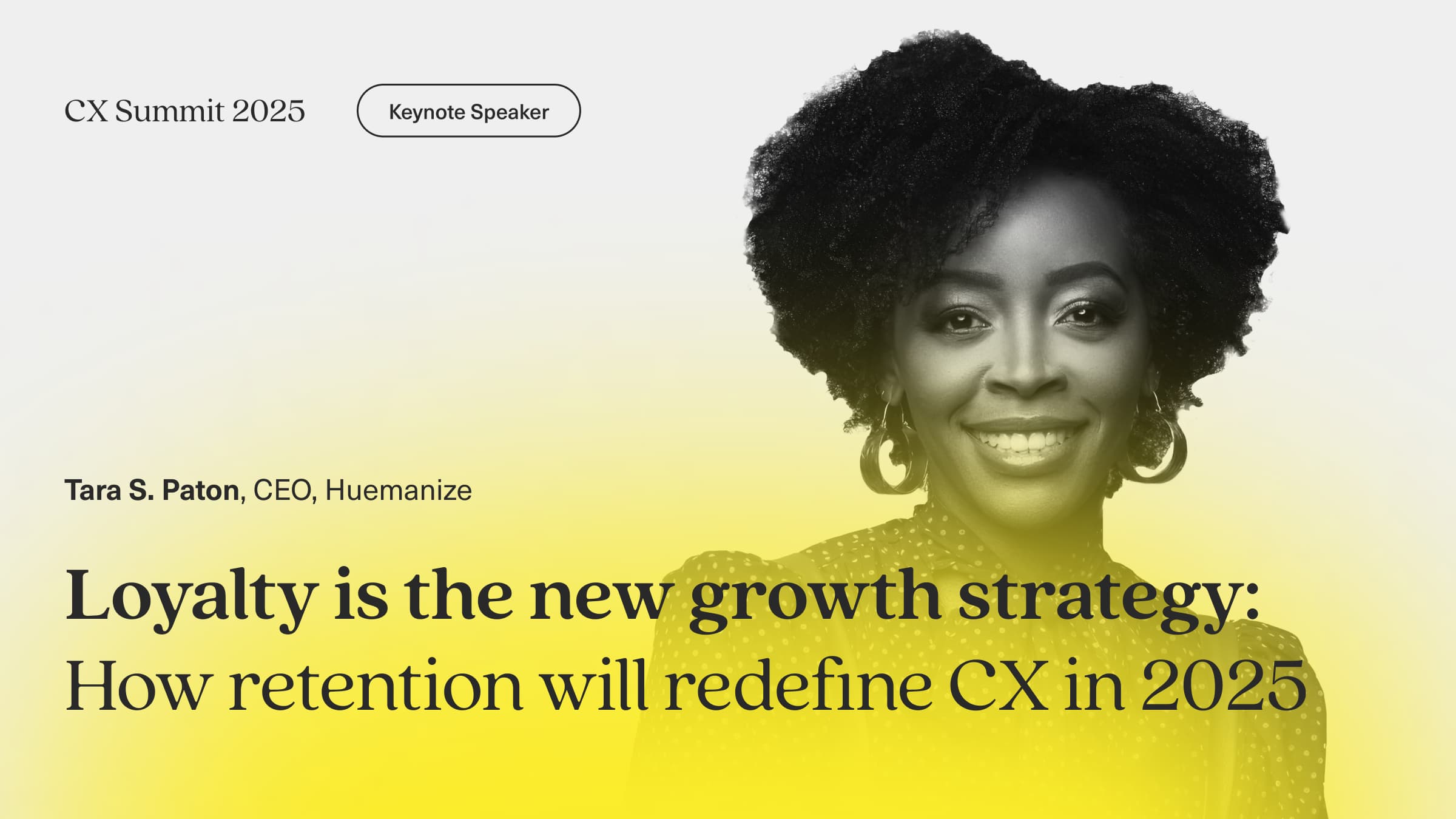In this conversation, Gabe Larsen sits down with Caela Castillo, Director of Customer Experience at JAXXON, to talk loyalty, leadership, and what it really means to deliver standout CX. With a background in customer service, retail, and even fashion history, Caela brings a fresh perspective to the evolving expectations of today’s shoppers and how brands can rise to meet them.
This interview has been edited for clarity.
Gabe: Let’s get into the loyalty piece. You’ve been in this space a long time. How do you personally define loyalty, and how have you seen it change over the years?
Caela: Loyalty can mean a lot of different things. We usually think about it in terms of repeat purchases, but that’s not always the full picture.
There are brands I followed for years before I ever made a purchase. Sometimes people just aren’t ready to buy—they may be saving up or waiting for the right moment—but they’re still talking about your brand and recommending you to others. That matters.
Then you’ve got customers who are loyal because of the treatment they’ve received. We often have people who ask for a specific agent by name because they had such a great experience last time. That kind of relationship builds long-term loyalty, too.
Gabe: I love that you’re broadening the definition. Most of us do go straight to repeat purchase.
You’ve been managing teams for a while—how do you know when your team is moving in the right direction? There’s so much going on. You have to go high, go low, and keep everything aligned. How do you stay on track?
Caela: Honestly, a good indicator is when things just get quieter—in a good way. Once you’ve set a solid foundation, you start getting fewer repeat questions from your team. At one point I even thought, “Wait, why isn’t anyone asking me anything today?” But it was just because we had set things up clearly, and things were running smoothly.
There are also metrics I used to obsess over—like first response time and resolution time—that now I don’t need to think about as much because the team consistently performs well. But for smaller or newer teams, those metrics are still critical. They help you see if you’re staying consistent and efficient.
Gabe: That’s such a good callout. Metrics matter—but only the right ones. Some teams get caught up in things that don’t actually move the needle.
Caela: Totally. You can’t focus on just one number and let everything else fall apart. We’ve had contests or goals to help focus on one thing, but the real value is in how those goals support bigger outcomes.
Gabe: Let’s go back to loyalty for a second. Are there any traditional rules around loyalty or retention that you think leaders should just ignore?
Caela: Definitely. A lot of brands feel like they have to have a traditional tiered loyalty program with all the bells and whistles. But sometimes, it’s more impactful to respond to what a customer is actually telling you.
I’ll go into tickets myself sometimes just to keep a pulse. You’ll see messages like, “I’m buying this for my grandson’s birthday.” Maybe it’s their first or second purchase, but clearly this is meaningful for them. That’s a chance to go above and beyond.
It could mean sending a future discount, upgrading shipping, or including a gift. That’s not something a points system will catch, but it makes a real impact.
Gabe: Such a great example. But how do you help your team recognize those moments and act on them? Is that something you can really train?
Caela: You can absolutely train for it. Some people are naturally more empathetic, but most support agents have the capacity—it’s just about slowing down a bit and seeing the bigger picture.
I tell my team: take ten extra seconds to read the message and look at the customer’s history. That small pause can make a big difference. And we do build systems—tags, rules, macros—to help surface those moments, so the team gets used to spotting them.
Gabe: I love that. It really doesn’t take much longer, but the payoff is huge. Switching gears a bit: a lot of people are facing resource constraints right now. When you can’t do it all, how do you prioritize and make trade-offs?
Caela: We all face that. It comes down to deciding what is most important and getting creative. During high-volume periods like holidays, I can’t hire a bunch of extra agents. So we’ll pause certain things—like responding to all five-star reviews—and catch up later. That way, we’re still delivering on the essentials, and nothing gets missed long-term. It’s just about prioritizing what needs to happen now versus what can wait a week.
Gabe: Great example. And you’re right—it won’t ruin your business to shift timelines slightly. Another common question: how do you know you’re on the right path as a leader? Especially for newer leaders, that can be tough to gauge.
Caela: Trust your gut. I really believe that. Also, do a check-in with yourself. I’ll jump into tickets myself and see, do I have the tools and macros I need? Is everything working the way I expect it to? You’ll often spot little gaps that way. Maybe there’s a missing rule or something’s not tagged right. You cannot fix everything overnight, but those small check-ins make a big difference.
Gabe: Love that. Leaders get hired for a reason—sometimes your instinct is worth listening to. Okay, last question. A lot of CX leaders are feeling overwhelmed. Budgets are tight, inboxes are flooded with AI vendors, and everything feels like too much. What advice would you give for someone trying to make progress without getting buried?
Caela: Start by separating what you can control from what you can’t. Push the uncontrollable things aside. Then ask yourself: what can I do today or this week that will move something forward? It does not have to be huge. Just solve one small problem now, and that is one less thing to worry about later. And give yourself credit. You probably have tools or experiences from other areas that you can apply here. Trust yourself, take it one step at a time, and break it all down. You do not have to fix everything at once.
Closing thoughts
Caela Castillo reminds us that loyalty is not earned through points programs or rigid rules—it is built in the moments when brands show they are listening. The real customer experience win? Empowering your team to pause, notice, and act with empathy. The hot take: loyalty is not a metric—it is a feeling. And the brands that prioritize emotional intelligence over automation are the ones that will keep customers coming back, even when times get tough.
Ready to take the next step in your brand’s customer experience? Chat with our team to see what Kustomer’s comprehensive AI-powered CRM and customer support tool can do for you.




